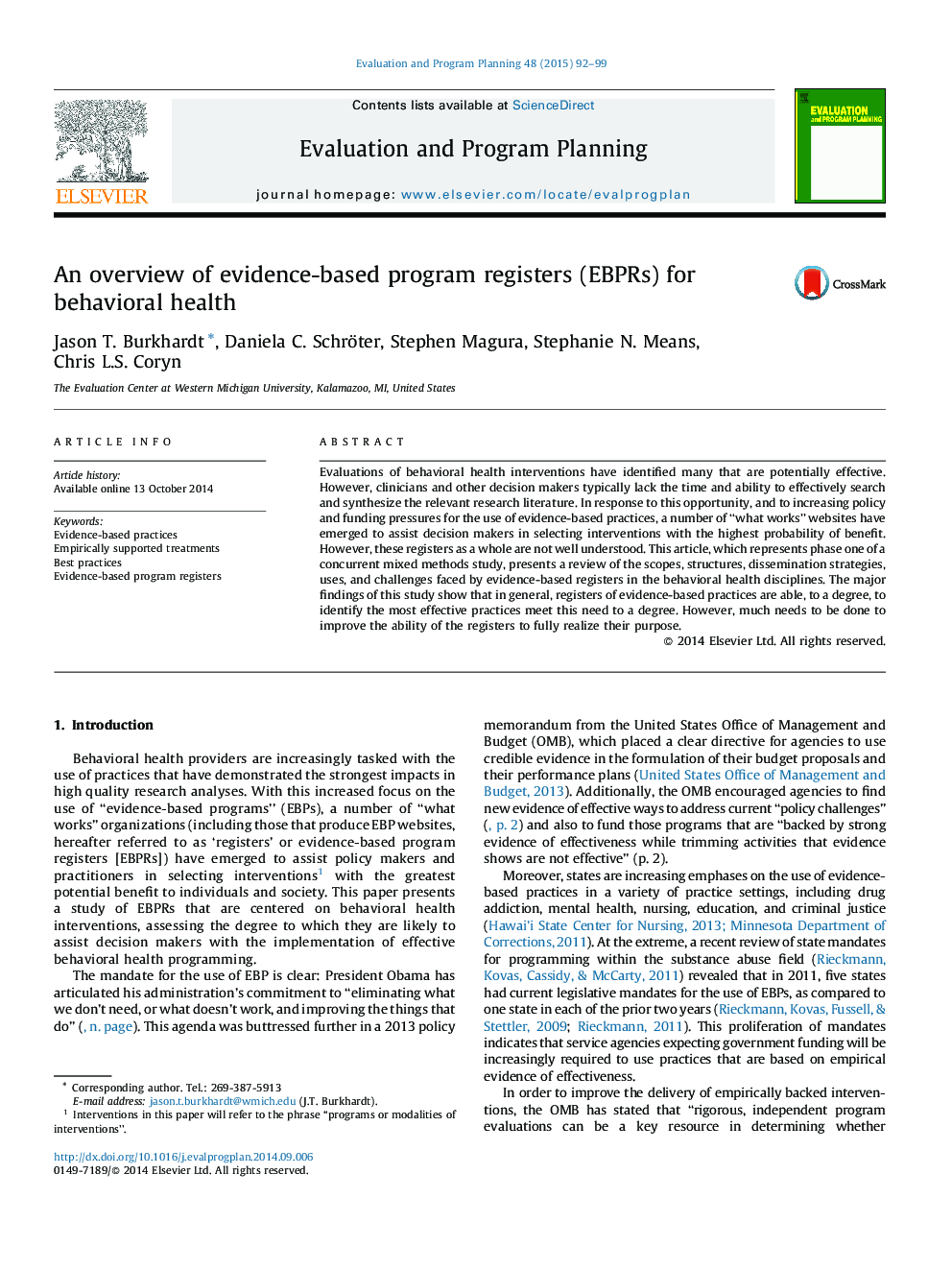| Article ID | Journal | Published Year | Pages | File Type |
|---|---|---|---|---|
| 6793329 | Evaluation and Program Planning | 2015 | 8 Pages |
Abstract
Evaluations of behavioral health interventions have identified many that are potentially effective. However, clinicians and other decision makers typically lack the time and ability to effectively search and synthesize the relevant research literature. In response to this opportunity, and to increasing policy and funding pressures for the use of evidence-based practices, a number of “what works” websites have emerged to assist decision makers in selecting interventions with the highest probability of benefit. However, these registers as a whole are not well understood. This article, which represents phase one of a concurrent mixed methods study, presents a review of the scopes, structures, dissemination strategies, uses, and challenges faced by evidence-based registers in the behavioral health disciplines. The major findings of this study show that in general, registers of evidence-based practices are able, to a degree, to identify the most effective practices meet this need to a degree. However, much needs to be done to improve the ability of the registers to fully realize their purpose.
Related Topics
Health Sciences
Medicine and Dentistry
Public Health and Health Policy
Authors
Jason T. Burkhardt, Daniela C. Schröter, Stephen Magura, Stephanie N. Means, Chris L.S. Coryn,
